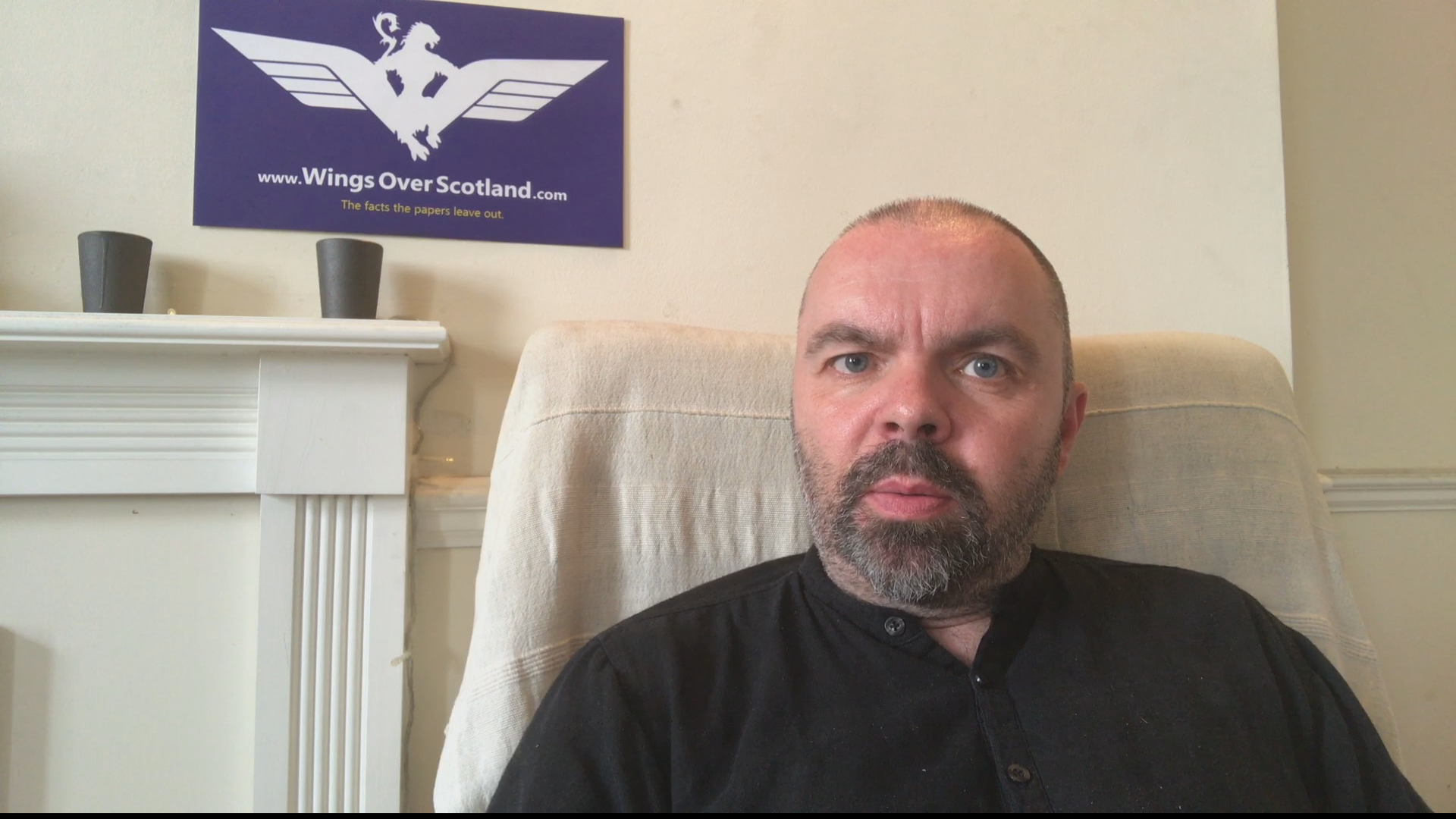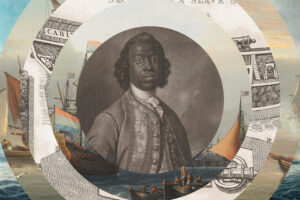
Credits: First Minister of Scotland / Flickr
The following is an extract from Should Auld Acquaintance Be Forgot, a book which examines the consequences of Scottish independence. The book can be bought here.
Leadership in politics is more important than in most other fields, since the leader must both dominate the party and inspire the people. The more that politics is determined by the media, including the social media, and the less it is by the movements that have been the base, the more crucial becomes the leader’s ability to take and keep power and to enthuse audiences. In nationalist politics of the kind practised in Scotland and elsewhere in Europe, the reliance on leadership becomes still more acute. The leader must make the break with the long-established system credible, even imperative: and must rouse and prolong an emotional attachment to the cause, and a belief in its capacity to transform the society.
Alex Salmond, leader of the nationalists from 1990 to 2000 and again from 2004 to 2014 in which time he was First Minister of Scotland (2007–2014) was described by Murray Ritchie, a former political editor of The Herald (Glasgow), as ‘arguably the most effective politician in the United Kingdom’. Yet he made fundamental mistakes, which have done his party little good: he caused to be published a description of Scotland’s economy in 2013, with hugely exaggerated claims for its future, which sapped its credibility; he misread the mood of Scots by taking the Party into a referendum on independence in 2014, and in the event lost by a significant margin of 55:45; on resigning from the leadership and later losing his seat, he took a post as a presenter on RT (Russia Today), the Russian propaganda channel. As this is written, he faces fourteen charges: nine charges of sexual assault, two of attempted rape, two of indecent assault and one of breach of the peace, while in office: he has denied all of them.
His claim to justify Ritchie’s judgement is his building of the SNP into the dominant party in Scotland: in itself, an impressive piece of political work over more than a decade. But his legacy is a mixed one: not because all political lives end in defeat, but because he used his position to peddle false claims on his country’s economy and, while still a public figure, aligned himself publicly with an authoritarian regime. Indeed, he has shown himself through his career as one drawn to such authoritarian and/or wealthy figures as Rupert Murdoch, Donald Trump (briefly), Vladimir Putin (at a distance) and Fred Goodwin, the former CEO of the Royal Bank of Scotland.
At the height of his power, however, he was able to dominate the SNP in and out of government; to (twice) choose his own successor, in John Swinney (in 2004) and Nicola Sturgeon (in 2014). He was a powerful, witty and nimble speaker; an excellent campaigner, with a demotic and optimistic style.
He could handle, indeed enjoy, power, and passed his leadership to another who could do the same. Nicola Sturgeon, forty-four when she assumed the leadership, took a law degree at the University of Glasgow, practised law for a few years before being elected, after several failed bids, to the Scots parliament in 1999. Seen early as a future leader, she considered standing for the post in 2004, but agreed to a deal with Salmond under which she would be his running mate, then deputy, with the health portfolio as her own; she also became responsible for investment, and the constitution. Childless, like Salmond– in her case, she revealed she had had a miscarriage in 2011– her work rate is said to be formidable, while her husband, Peter Murrell, is the SNP’s chief executive. The quest for Scots independence is wholly her world.
Both she and Salmond leaned to the left: and, though Salmond had, in his first years in the Party, been on its ‘far’ left (indeed was suspended from the SNP because of it) their natural position came to be social democratic, which the Party itself took as its official ideology. It has meant that both, especially Sturgeon, emphasize the social benefits that nationalist rule has brought– courtesy of a large subsidy from Westminster, a fact never mentioned. Social democracy, co-existing as it does with some form of capitalism, can only be as generous in its provisions in measure to the success of privately owned companies. Salmond, and with lesser enthusiasm Sturgeon, have both boosted Scottish enterprise: Salmond’s warmth in supporting the 2007 takeover by the Royal Bank of Scotland of the Dutch bank ABN-Amro – judged one of the worst takeovers in history, executed with minimum oversight or interrogation by a highly paid board– must have embarrassed even him, though hardly affected his party’s rise.
Salmond had, early in his leadership, fought and won a battle for an explicit social democratic stance working within an enterprising, free market–Scotland. David Torrance, the most insightful and indefatigable chronicler of Scots politics over the two decades of its most turbulent period, quotes Salmond telling the journalist Ian Dale that ‘We have a very competitive economic agenda. Many business people have warmed to the SNP. We need a competitive edge, a competitive advantage: get on with it, get things done, speed up decision making, reduce bureaucracy’: the comment of a free marketeer. That approach has ruled the party’s economic stance since the 1990s: but if it has pushed aside hazy notions about independence issuing in socialism, it has also in practice dictated greatly overstated optimism about an independent country’s prospects.
The party Salmond built and Sturgeon inherited was, until the latter part of the 2010s, one used to success and growth, and to humiliation of the parties that had ruled Scotland for most of the twentieth century, the Conservatives and Labour. Salmond saw the country’s 800,000 Catholics, generally Labour voters but feeling still discriminated against in Scots society, as untapped resource. Through a strong relationship with the Scots Cardinal Winning, who revealed that he had become a nationalist, Salmond presented his party as one opposed to bigotry and discrimination. Winning, who died in 2001, much criticized for arguing that it was the responsibility of one abused by a priest to report the incident to the police, not the duty of the Catholic Church, described the SNP, in a speech in Brussels in 1998, as ‘mature, respectful of democracy and international in outlook’, and quoted polls suggesting Scotland could be independent within a decade.
Salmond’s courtship had been necessary: the nationalists had recent form as anti-Catholics. In 1982 John Paul II had scheduled a visit to Scotland: the then SNP President, and former leader, William Wolfe, wrote a letter to the Church of Scotland’s magazine Life and Work, objecting to the visit on the grounds that the Vatican was ‘not a state’ and thus not able to send a diplomatic representative to the UK. Refusing to back down as a row gathered force about him, Wolfe wrote privately to his successor as leader, Gordon Wilson, that ‘If the slogan “Home Rule is Rome Rule” becomes widely current again, it will become impossible for us to get a really significant and secure support out of the 80% of the population who are non-RCs.’
Wolfe was invoking a political past that had organized itself round religious boundaries: though these still had force, that force was fading, as Salmond saw. His gentle wooing of Winning and his flock was successful, and was a model of later outreaches by the party to the small, but growing immigrant communities, especially of Glasgow. He also had a more particular sympathy for Catholicism– seeing it as ‘the anchor, the rock of the independence movement in the days of Wallace and Bruce . . . it was the only institutional force that could be relied upon– certainly not the nobles’.
The positioning of the SNP as the decent, nice party as well as one militant for independence is one of the triumphs of its leadership, one which goes hand in hand with the careful boosting of a cult of leadership. Seeing the SNP in full conference for the first time, in Aberdeen in March 2017, was to witness a party whose senior officials came to the microphone to say that ‘I am fantastically proud of the leadership of First Minister Nicola Sturgeon’ (Angus Robertson, then deputy leader): and ‘Nicola Sturgeon and Alex Salmond! We are proud of them’ (Fiona Hyslop, then Cabinet member for External Affairs).
Much of the rest of the two-day event was taken up, on the stage, by people who were in one way or another grateful to the SNP government for helping them. One, a mother with three children, and ‘no confidence’, said that once she had joined the SNP, her confidence picked up and she was standing in local elections as a councillor. A woman with multiple sclerosis said that the Tory government and the media had made ‘our lives much worse’, and that the SNP would get disabled people elected. A debate on prostitution featured ‘sex trade survivors’ who called for the adoption of the Nordic model, which reduced demand for prostitution: a motion on the adoption of the model was passed, though several sex trade workers said surveys had shown it made the trade worse, and more dangerous. A young man said he had come out as gay at 22, and said he had been caused great pain by being called a ‘poof’ and a ‘faggot’: he broke down in tears. A woman said her daughter had been saved by the mental health system brought in by the SNP, after she had slashed her wrists: ‘other mothers shouldn’t have to see their daughter standing in a school corridor dripping in blood’, she said, and also broke down. A debate on immigration was largely taken up with justifying the government’s encouragement to migrants and calling out the UK government for barring entry.
The individual stories appeared wholly sincere, and were affecting. But what the conference was not, was a debate between rival positions and proposals, usually the stuff of political parties’ gatherings. A rare, brief example of this came when an SNP Westminster MP, Tommy Sheppard, proposed a motion condemning Israel ‘for the longest military occupation in the world’: a delegate opposed the motion, saying it sent the message that the party was one-sided on the issue. The motion was overwhelmingly passed, without further debate.
The party has retained unity, a formidable unity, by making its conferences and rallies into entirely self-serving events, marginalizing all dissent, including that of its left, a large part of which is represented by Common Weal, whose website publishes sharp critiques of party positions. Common Weal was particularly critical of the Growth Commission report, published by the Party in 2018, and aimed at providing a rational and responsible account of the economics of an independent Scotland in its crucial, early, years. The group charged the report with replacing Westminster-imposed austerity by Scots-imposed austerity, a criticism with some basis (see Chapter 4).
The SNP’s success is in part due to strong leadership, identification and skilful manipulation of a politics that is emotionally vibrant as well as policies which claim to make the nation, once it becomes an independent state, richer. But it would not have been possible, nor would the growth of the other independence movements have been possible, had there not been real disillusionment with the politics of the state of which the nation is part.
Scotland saw the decline of the Conservative Party to insignificance in the 1980s and 1990s, even as it remained strongly ahead in England, and thus in the UK. The claim that Scotland was being governed against its will, especially in the Thatcher premierships, carried real weight. New Labour found a response in Scotland as well as England, and the first Blair Cabinets had strong — over-strong, for the English–Scots representation. But after the death of the popular Labour Cabinet Minister Donald Dewar, elected as First Minister at the start of the new parliament, no one figure could be produced who could articulate a unionist politics as well as Salmond could paint the picture of independence. Indeed, Labour was hobbled by its recent past: during the long premiership of Margaret Thatcher, it encouraged the belief that the English majority that sustained Thatcher was ruining Scotland. The nationalists were thus able to argue that, this being the case, Labour was in part to blame for failing to win a Westminster majority, and that the only true defence was to form an independent nation.
Independence may be Scotland’s fate: a revulsion against the chaos of the Theresa May years and an inability to see Boris Johnson as one who could represent the Scots, might allow a stable majority of Scots willing to brave the perils of an independent existence. If an independence fever, stoked by greater indignation and even fear of a Brexit-ed future than was the unsuccessful attempt to break away in the 2014 referendum, took hold, there may be little unionists could do to hold back the flood, especially if Scots ‘émigrés’ in the UK continue to have a vote denied to them, and there is no vehicle for the rest of the UK having a voice in a decision which would end the United Kingdom. Canada, a country whose nineteenth-century consolidation as a state owes much to Scots, may offer a helpful example. It is to be found in the experience of Québec. Independence, almost approved in 1995, now all but off the agenda. A fuller argument for the Canadian experience and the lessons drawn from it forms part of the conclusion: I believe some approach similar to that introduced by the Canadian government to be essential for British democratic life, and not just in the context of Scotland.
Nothing in the twentieth and twenty-first centuries was so damaging to Britain’s politicians than the closing years of this century’s second decade. Nothing so assisted Scotland’s nationalists to achieve their ends. But they have not done so. Nor need they do so. More, the evidence to date points to the UK achieving what the European Union aspires to, but cannot reach: a gathering of separate nations into one state.


